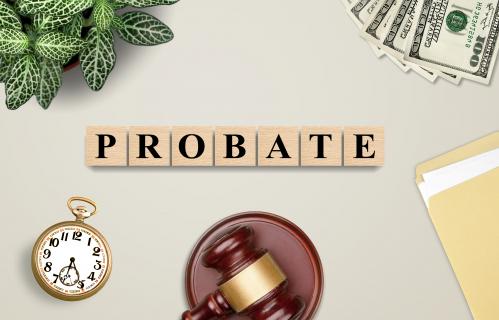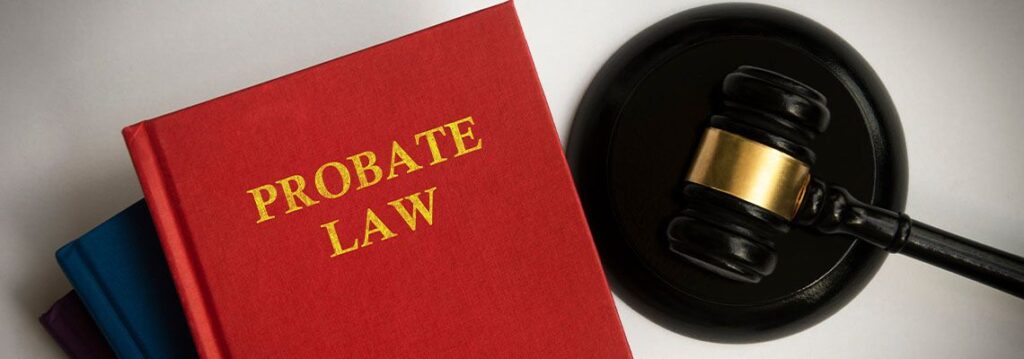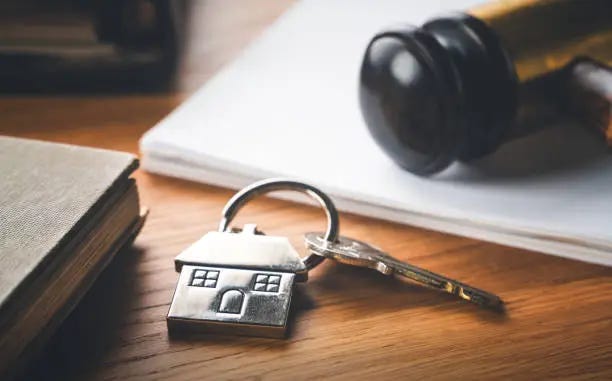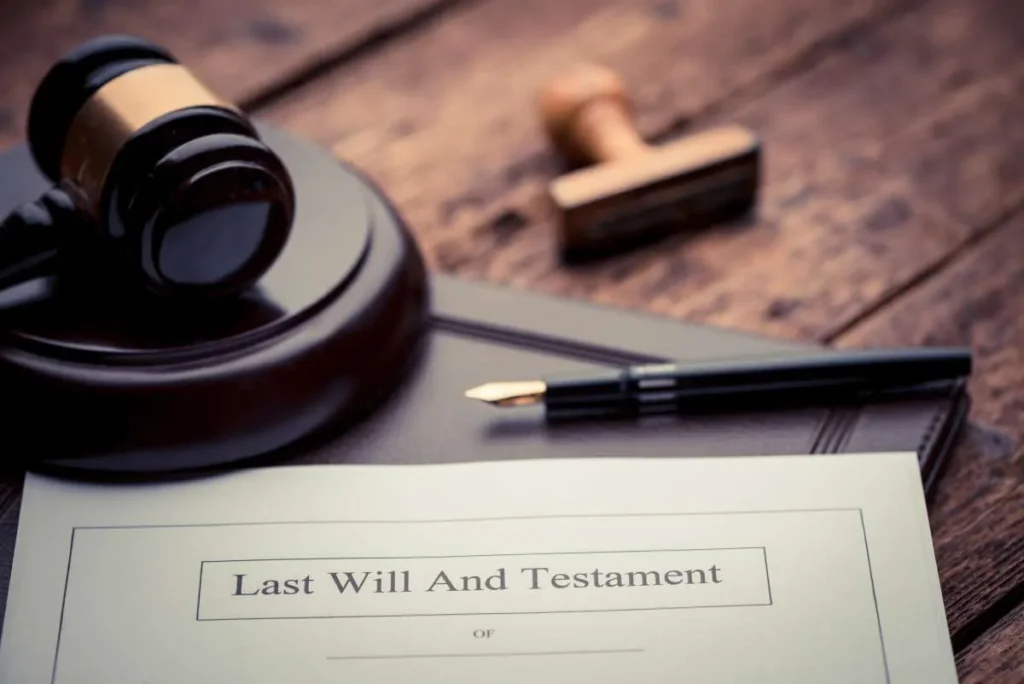If you’re handling the estate of a loved one who owned a motorcycle in Texas, you might wonder, are Texas motorcycles included in probate court? The short answer is yes. However, several factors determine how they are handled. These include whether the owner left a will, how the motorcycle was titled, and if any debts are attached. Understanding these factors can help you navigate the process efficiently.
Motorcycles, like cars and other vehicles, fall under personal property and typically go through probate court when the owner passes away. However, Texas probate laws provide alternative legal pathways that allow heirs to transfer ownership without a long probate process. These methods can save time and money, making it easier for families to settle estate matters.
This guide explains how Texas motorcycles are included in probate court, the legal steps to transfer ownership, and the best ways to manage a motorcycle estate. Knowing these details can help beneficiaries avoid legal disputes and delays when claiming a loved one’s motorcycle.
Understanding Probate and Texas Motorcycles
Probate is the legal process of settling a deceased person’s estate. It includes distributing assets, paying debts, and transferring property based on a will or Texas intestate laws if no will exists. The probate court oversees this process to prevent fraud, ensure fairness, and resolve financial obligations.
Motorcycles, like other titled assets, require legal documentation and court approval before being transferred or sold. However, Texas law allows for simplified transfers under certain conditions. If a motorcycle is part of a larger estate, including real estate and financial accounts, it may require formal probate proceedings before heirs can claim ownership.
If a motorcycle carries outstanding debts, those must be settled before transfer. In some cases, the estate may need to sell the motorcycle to cover obligations. The probate process ensures that creditors are paid and assets are distributed according to legal requirements.
When Are Texas Motorcycles Included in Probate?
A motorcycle must go through probate if it:
- Was solely owned by the deceased, with no co-owner.
- Was not designated as a transfer-on-death (TOD) asset, which allows it to bypass probate.
- Had no co-owner with rights of survivorship, which would automatically transfer ownership.
- Is part of a larger estate that requires formal probate, typically exceeding Texas’ small estate threshold.
A motorcycle included in a larger estate may require a full probate process before ownership transfers. However, some estates qualify for simplified probate procedures if they meet specific legal criteria. Assessing the estate’s total value and ownership details is crucial for determining the necessary steps.
Key Factors That Determine Probate for Motorcycles in Texas
1. The Role of a Will in Motorcycle Probate
A valid will plays a key role in determining how Texas probate courts handle motorcycles. If the deceased specified an heir for the motorcycle, the court will follow those instructions. However, if the will lacks clarity, probate becomes more complex, requiring additional legal reviews to identify the rightful owner. Without clear documentation, Texas probate laws dictate how the motorcycle is distributed.
If the will names a specific heir, that person inherits the motorcycle after probate. This designation prevents confusion and family disputes. It also speeds up probate by assigning ownership without delays. The designated heir must update the title with the Texas DMV and ensure compliance with state laws. If the process runs smoothly, the title transfer takes place within a few months, avoiding unnecessary legal hurdles.
When the will does not mention the motorcycle, the court treats it as part of the general estate. In this case, distribution depends on estate debts and total value. The court ensures a fair division among heirs, but the outcome may not match the deceased’s original wishes. The estate executor must list the motorcycle as part of the probate inventory before proceeding with the legal process.
If multiple heirs want the motorcycle, disagreements can arise over who keeps or sells it. This often leads to court intervention and delays. Family disputes over assets result in extra costs and prolonged probate. Some heirs choose to sell the motorcycle and divide the proceeds, reducing conflicts. Mediation services can also help families reach fair agreements without involving lengthy court battles.

2. How the Motorcycle Title Impacts Probate
In Texas, the motorcycle’s title decides whether probate is required. Different ownership structures affect how heirs claim ownership. The title format plays a significant role in determining probate needs and the complexity of the transfer process.
- Sole Ownership: If the motorcycle was titled only in the deceased’s name, it must go through probate before heirs claim it. The court examines the will or applies Texas intestate laws to decide ownership. If the motorcycle is part of a large estate, probate may take several months or longer, depending on legal challenges and court schedules.
- Joint Ownership with Rights of Survivorship: When the motorcycle has joint ownership with survivorship rights, the surviving owner inherits it automatically. This structure helps families bypass probate and legal fees. However, the title must clearly state “rights of survivorship” for the transfer to be valid. If the title lacks this wording, probate may still be necessary.
- Transfer-on-Death (TOD) Beneficiary: Texas allows owners to name a beneficiary on the title, enabling the motorcycle to transfer outside probate. After the owner dies, the beneficiary applies for a title transfer at the Texas DMV, completing the process legally. This approach minimizes delays and legal fees, but the TOD designation must have been recorded correctly before the owner’s passing. If no record exists, probate remains necessary.
Understanding the title status determines whether a motorcycle must go through probate. Proper estate planning helps ensure fast ownership transfer without legal complications. Executors and heirs should review title documents early to avoid probate delays. If questions arise, an estate attorney can provide guidance on legal transfer options. Having the right documentation in place can prevent costly legal battles and probate delays.
3. How Outstanding Loans and Liens Affect Probate
When a motorcycle has an active loan or lien, the lender holds a legal claim on the vehicle. Before ownership transfers, heirs must resolve outstanding debts. If financial obligations remain unpaid, the motorcycle cannot be legally transferred to an heir.
Paying Off the Loan Before Transfer
If the estate has sufficient funds, the executor pays off the loan before transferring ownership. This step prevents legal roadblocks and ensures that heirs receive a clear title. The executor may use estate assets or sell other property to cover the debt. Once paid, the Texas DMV removes the lien, allowing the new owner to take legal possession.
Refinancing or Assuming the Loan
If an heir wants to keep the motorcycle, they may need to refinance or assume the loan. Most lenders require credit approval before allowing a loan transfer. In some cases, the lender may ask for full repayment before issuing a clear title. Beneficiaries should contact the lender early to explore repayment options and prevent delays in the transfer process.
Selling the Motorcycle to Settle Debts
If the estate lacks enough assets, the motorcycle may need to be sold to pay creditors. In this situation, proceeds go toward settling outstanding debts, and any remaining balance is distributed to heirs. Selling may be the most practical option if heirs lack the resources to pay off the loan. Some family members may choose to buy out the motorcycle from the estate, allowing it to stay within the family.

Consulting an Attorney for Debt Resolution
Understanding the motorcycle’s financial status is crucial before filing for probate court proceedings. Executors should work with an attorney to find the best strategy based on the estate’s financial condition. If the estate carries significant debt, legal guidance can help navigate debt negotiations, structured payments, or asset liquidation.
Families often face unexpected financial challenges when inheriting motorcycles. Unpaid loans, missing paperwork, or lender disputes complicate the probate process. Reviewing financial records early and working with professionals prevents costly legal complications. Proper estate planning—such as paying off debts in advance or setting up a TOD beneficiary—helps heirs avoid financial and legal burdens associated with inheriting a motorcycle with outstanding debt.
Final Thoughts on Texas Motorcycles and Probate Court
So, are Texas motorcycles included in probate court? The answer depends on ownership, title status, and estate value. Many motorcycles must go through probate, but alternative legal methods exist for faster, simpler transfers.
If you are handling a motorcycle estate in Texas, consult a probate attorney or the Texas DMV to explore your best transfer options. Understanding Texas probate laws helps you avoid legal roadblocks and streamline the inheritance process.
Planning ahead—by setting up a transfer-on-death (TOD) title or opting for joint ownership—can significantly reduce probate costs and wait times. These proactive measures help heirs avoid legal hassles, ensuring that motorcycles transfer efficiently without the need for extensive court proceedings. Whether you’re an executor, an heir, or someone planning your estate, knowing Texas probate laws can save time, money, and stress in the long run.
Handling a loved one’s Texas motorcycle estate doesn’t have to be overwhelming. With legal knowledge and preparation, you can navigate probate smoothly and ensure the motorcycle ends up in the right hands.








